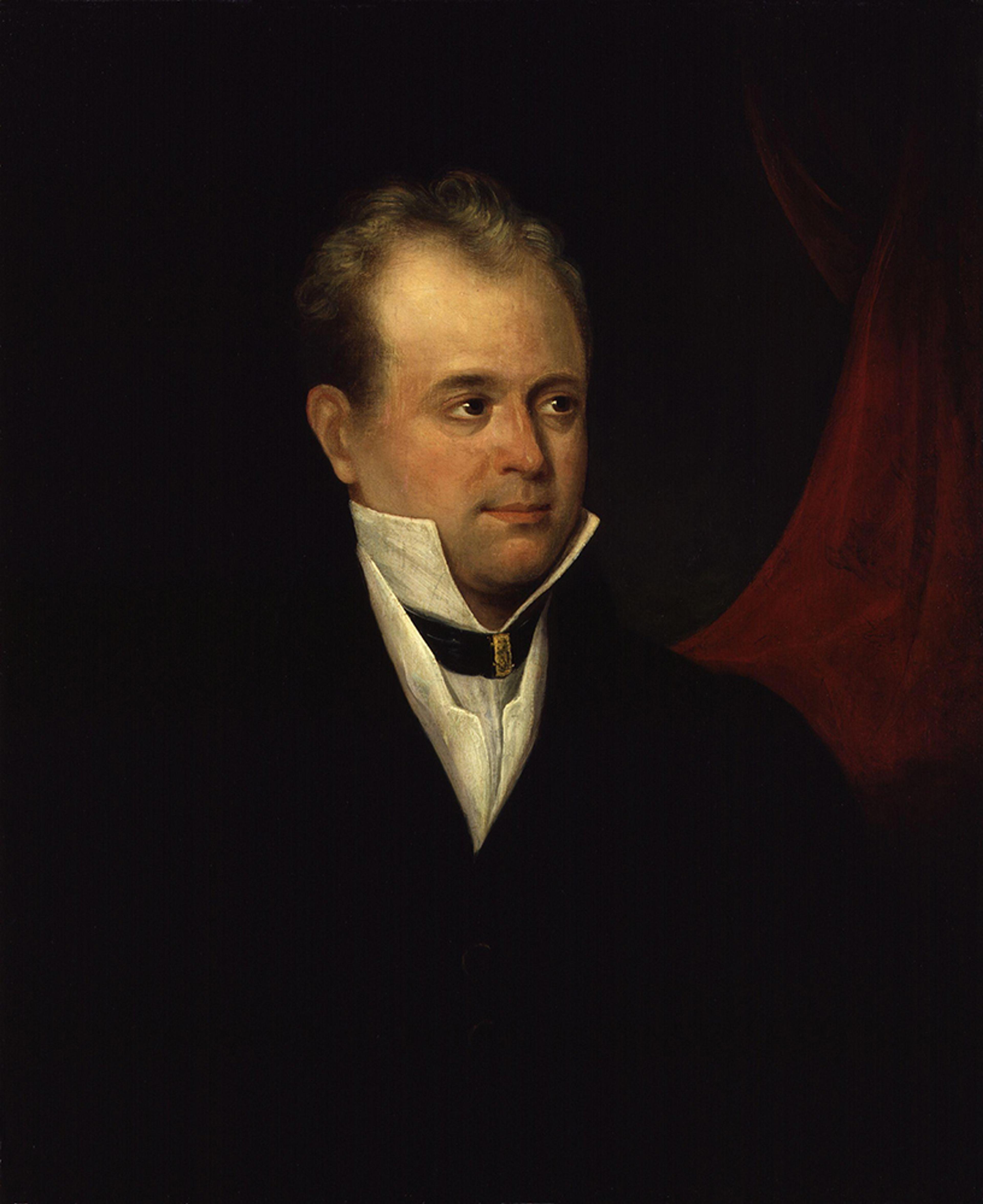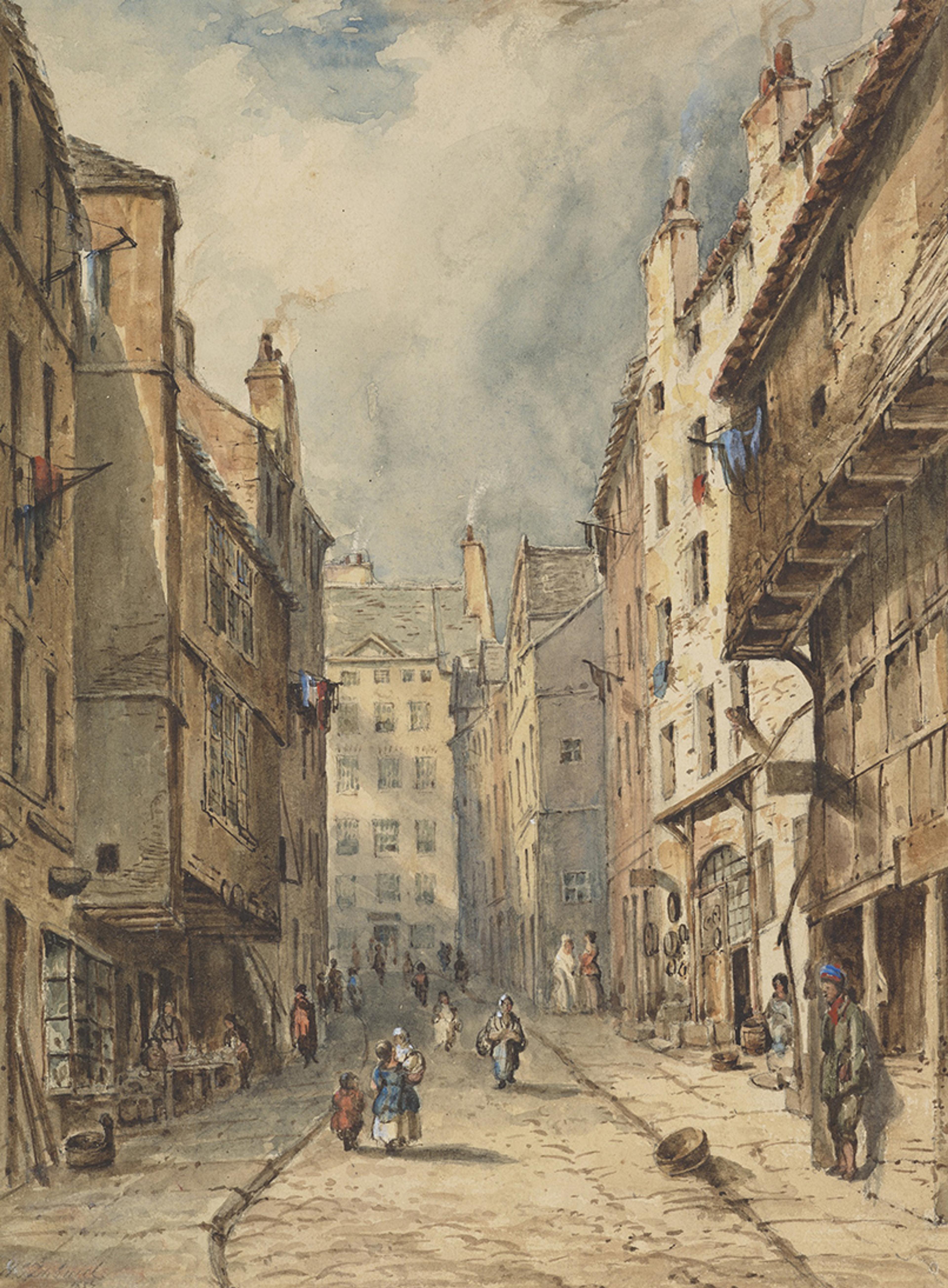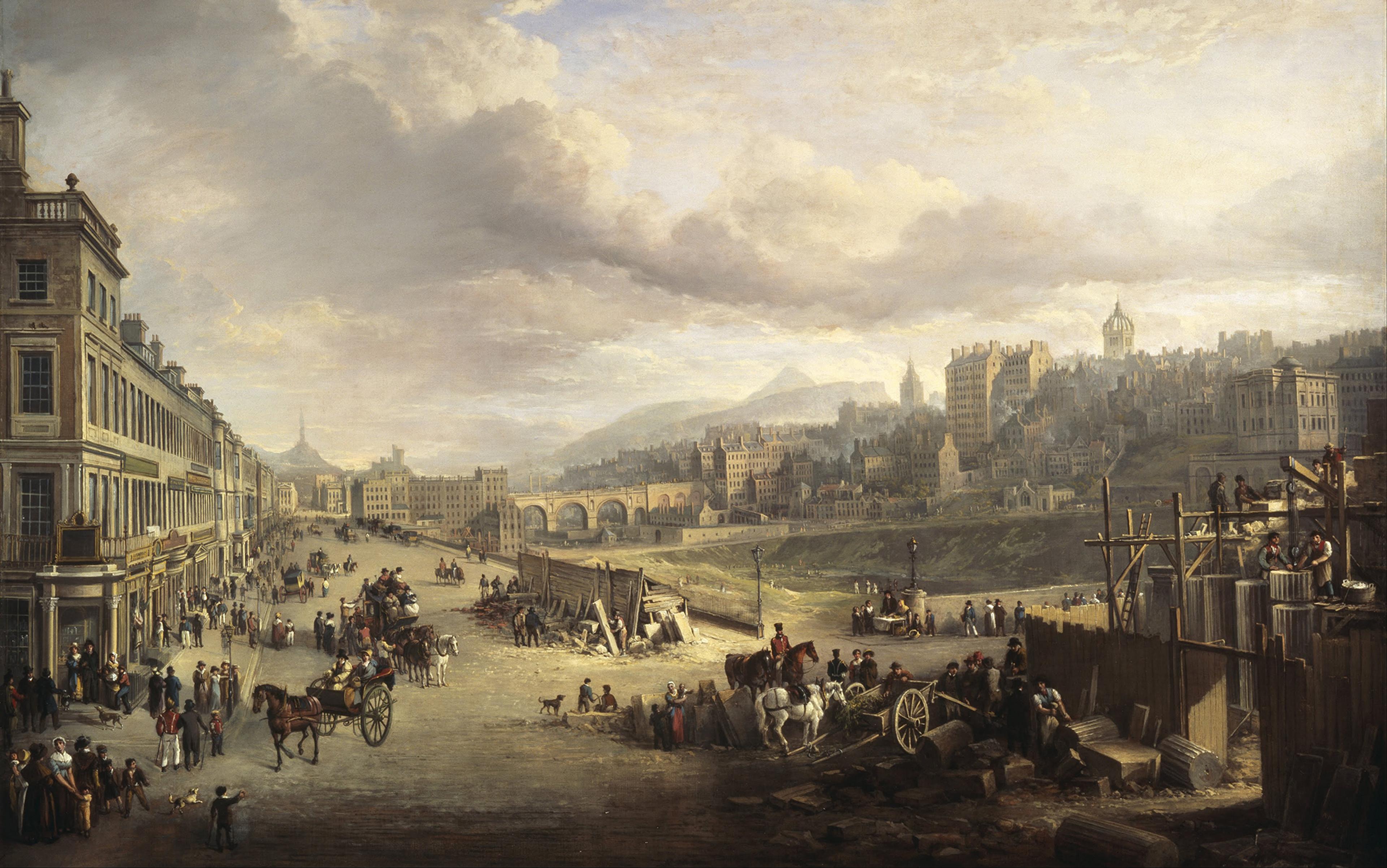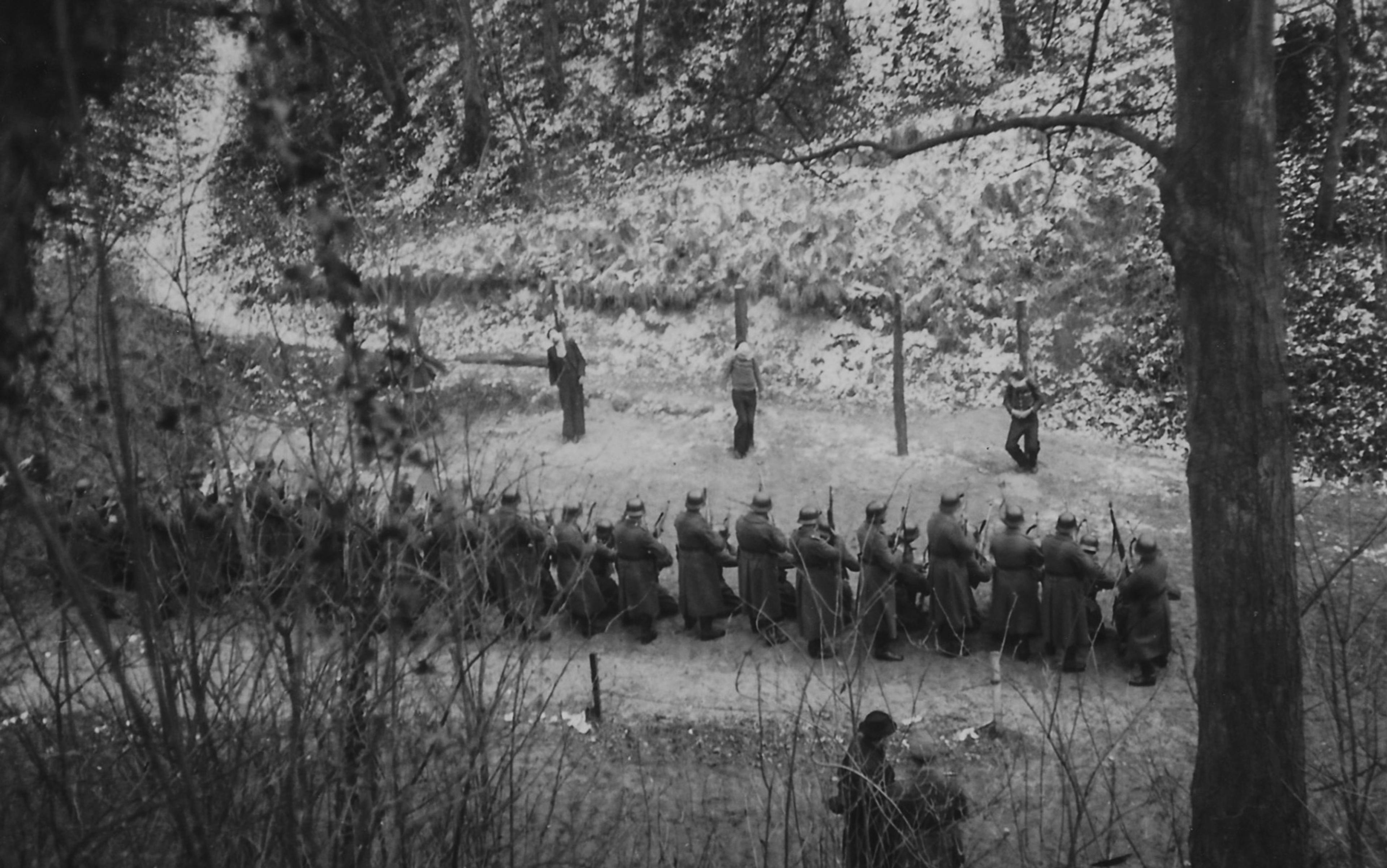On the morning of Saturday 3 June 1843, the Edinburgh police made their way past Calton Hill to the tenements of Haddington Place. Their target was the residence of Thomas Finlay, a former cabinetmaker who was suspected of running an ‘infidel’ library on the premises. Described by his sympathisers as a ‘respectable and venerable old man’, he had never previously attracted unwanted attention from the authorities. Yet Finlay had fallen foul of Scots blasphemy law, which banned the publication, sale or circulation of any work that denied or ridiculed Christianity or the divine inspiration of the scriptures. From the 1820s, the authorities had sought to clamp down on such materials and, for the first time since the 17th century, several Scots faced charges of blasphemy. The raid on Finlay’s home, which he later recalled had left the ‘innermost corner of my dwelling ransacked, and the very locks of hair of my departed father and mother strewed about’, duly uncovered numerous blasphemous books and pamphlets. These materials were seized in evidence and Finlay spent a grim night in Calton Jail before being released on bail, paid by his friends, to await trial.
Finlay’s arrest was just one of several dramatic episodes in a fractious battle over belief that unfurled in the early decades of 19th-century Scotland. At the heart of the struggle lay fundamental questions about freedom of expression. Should individuals have the right to share publicly controversial views on religion? Or were there ethical grounds to suppress the public dissemination of such ideas for public safety? The debate had been sparked by the striking emergence of minority groups of self-professed ‘conscientious unbelievers’ or freethinkers during the 1820s, one of which Finlay had joined at its inception.
The most vocal members of these communities were either materialist atheists who denied God’s existence or deists who believed in a creator deity but rejected the divinely inspired status of the Bible. Despite theological differences, freethinkers shared the view that Christian theology, institutions and clergy had harmed the welfare of individuals and society. Many were sympathetic to political reform and argued that the erroneous belief in providence encouraged acceptance of the sociopolitical status quo as part of the divine plan. Others pointed to the distress caused by belief in the Calvinist doctrine of double predestination, which asserted that the elect were foreordained for salvation while the damned were destined to eternal damnation. Above all, it was agreed that social and individual flourishing depended on the right to unrestricted intellectual enquiry and freedom of expression on all subjects, including religion.
Groups who held such controversial views were unprecedented in Scottish cultural history. Scotland was overwhelmingly Christian and Protestant. Calvinist Presbyterianism represented the dominant strain of Scottish religiosity. It underpinned the Church of Scotland, established by law to protect the nation’s moral and spiritual welfare, and forged a distinctive religious culture that set Scotland apart from its southern Anglican neighbour. So pivotal was Calvinist Presbyterianism to the national identity of most Scots that, as Colin Kidd argued in Unions and Unionisms (2010): ‘Until the 1920s religion was unquestionably the central issue of division between Scots and English within the Union.’
Calvinism was also shared by many other denominations outwith the ecclesiastical establishment. From May 1843, this included the Free Church of Scotland, which was born of the ‘Great Disruption’ of the Church of Scotland, when more than a third of the latter’s ministry left in protest at state encroachments on its spiritual independence. Smaller Christian groups, including Episcopalians and Catholics (whose numbers would expand significantly with Irish immigration in the latter half of the century), did not share the dominant Calvinism, and there were also minority Jewish communities. Yet the emergence of communities of freethinkers, who felt that they could not ‘conscientiously’ subscribe to any existing religious group, were very much a novel feature in the landscape of belief.
This is not to say that disbelief in the Judeo-Christian God had been entirely unheard of in Scottish society. Faith, then as now, was rarely static throughout a person’s life, and biographies, letters, spiritual diaries, conversion narratives and poems reveal that Scots across the centuries have experienced periods of doubt or loss of faith. Nor were more radical forms of disbelief entirely new. During the previous century, the age of the Scottish Enlightenment, the celebrated philosopher and historian David Hume (1711-76) had acquired a notorious reputation for ‘infidelism’. His philosophical scepticism denied the possibility of any certain knowledge of God’s existence and he had published highly provocative critiques of miracles, the soul’s immortality and the distinctiveness of Christianity in global religious history. Scottish freethinkers themselves were conscious of Hume’s legacy. Speaking at his trial in December 1843, Finlay reflected on the irony of his imprisonment in Calton Jail, just a few minutes’ walk from Hume’s grand mausoleum: ‘I thought it strange to be confined for my infidelity, in a prison close by the walls of which stands a splendid monument in memory of the celebrated Infidel … David Hume.’
Yet there were radical differences between the modern unbelief of figures such as Finlay and the Humean scepticism that had raised eyebrows, but not the arm of the law, during the Scottish Enlightenment. What set the radical ‘conscientious unbelievers’ of the early 19th century apart from their 18th-century predecessors? How far did they succeed in changing opinions over the right to freedom of expression on religious matters? And what became of Finlay and his fellow freethinkers?
First of all, the new type of unbeliever tended to come from the middling or lower ranks of Scottish society. Many were skilled artisans, apprentices or owners of small shops, and some belonged to less lucrative professions, including weavers and factory workers. By contrast, notorious freethinkers of the previous century, such as Hume, had belonged to the intellectual and scholarly elite. For leading figures in Church and State, it was another matter altogether for radical freethinking ideas to be circulating more widely among the people. ‘Popular unbelief’ summoned the terrifying spectre of the French Revolution of 1789 and the radical de-Christianisation campaign of the Reign of Terror. To members of the civic and ecclesiastic establishment, popular unbelief was inseparable from the dangerous threat of republicanism, violence and radical social upheaval.
Secondly, 19th-century freethinking groups tended to eschew the philosophical scepticism of Hume. Rather than stressing the limits of humankind’s ability to definitively determine anything about the nature and existence of God, they favoured deism or atheism and were thus more attracted to the bold writings of French Enlightenment philosophes such as the materialist Baron d’Holbach. These new unbelievers were also forging increasingly visible and organised communities. Three crucial developments were pivotal to this process: radical newspapers, the emergence of substantial freethinking societies, and freethinking bookshops.

Portrait of Richard Carlile (1790-1843) by unknown artist. Courtesy the National Portrait Gallery, London
The Republican newspaper played a central role in bringing Scotland’s freethinkers together. Launched in London in August 1819, and dedicated to the destruction of ‘kingcraft’ and ‘priestcraft’, its pages forged a sense of community for freethinkers across Britain. Many were moved by the plight of the Republican’s bold editor, Richard Carlile. A former tinplate worker, Carlile faced charges of blasphemy and sedition in October 1819. He was sentenced to three years’ imprisonment in Dorchester Gaol and hit with an eye-watering £1,500 fine. Unable to pay such a large sum himself, he was released only in 1825. Year on year, many sympathisers had contributed towards the payment of his fine, with lists of subscribers printed in The Republican, which Carlile continued to edit from prison. The names included men and women from Edinburgh, Glasgow, Dundee, Paisley, Aberdeen, Kirkcaldy and Falkirk. A handful of these Scots identified themselves as ‘liberal Christians’ who opposed Carlile’s prosecution and supported freedom of expression. Yet the majority were fellow unbelievers who agreed with the editor’s critique of Christianity. Some listed themselves by name, but others remained anonymous, using tags such as ‘A Sceptic’, ‘A Deist’, ‘A Materialist’ or ‘An Enemy to Devil Manufacturers’.
‘Infidel’ parties were arranged by local weavers where controversial theological works were read aloud
Subscribers to Carlile’s fines were among those who founded the freethinking ‘Zetetic’ societies in Edinburgh and Glasgow in the 1820s. Taking their name from the Greek verb zētein, meaning to ‘to seek after’ or ‘enquire’, they provided new hubs for conscientious unbelievers. The Zetetics met weekly on Sundays to debate controversial theological and philosophical topics and provided their members with a library. In 1820, the Edinburgh Zetetic Society, which Finlay joined, rented premises in Potterrow, at the heart of the city’s Old Town. By 1822, they were regularly attracting audiences of 300 to 400, including a small number of women and children. Despite having to restrict their meetings after a police raid in November that year, they remained active until at least 1826.
By the late 1830s, another ‘Society of Freethinkers’, in all likelihood a descendant of the Zetetics, was active in nearby Blackfriars Street. Glasgow’s Zetetic Society, established in 1824, also attracted several hundred members. By the 1830s, the group was renting a hall in Nelson Street, south of the Clyde, where it continued to meet until at least the early 1840s. Although Scotland’s rapidly expanding cities were home to the most organised and substantial societies of freethinkers, more informal groups existed elsewhere. As Norman Macleod, a minister in the rural parish of Newmilns in Ayrshire was to discover in 1839, ‘infidel’ parties were being arranged by local weavers where controversial theological works were read aloud.
A sense of community among unbelievers was also fostered by a handful of individuals who set up freethinking bookshops, reading rooms or lending libraries in Edinburgh and Glasgow. James Affleck, a former grocer and founding member of Edinburgh’s Zetetic Society, opened the nation’s first freethinking bookshop in 1823 in the commercial district of Adam Square, now Chambers Street. Affleck declared that a central motivation for doing so was to ‘have a better opportunity of coming in contact with liberal-minded men’. Affleck’s bookshop proved short-lived. Despite proceeding with caution and selling radical literature only to known freethinkers, he was undone by a police spy who posed as a fellow unbeliever for several months. Duped into selling the police agent a copy of the highly controversial Theological Works of Thomas Paine (1824), Affleck found himself facing trial for selling blasphemous works. Three other radical booksellers had already faced blasphemy charges between 1819 and 1820 in the first of such cases since the 1690s. Rather than stand trial, they had fled the courts and were outlawed in absentia. Affleck chose to face the charges and was found guilty. His books were confiscated and in 1824 he was sentenced to three months’ imprisonment in Calton Jail and ordered to pay a £100 fine.
Others, however, emerged to take Affleck’s place. Among the most notable was Finlay’s son-in-law, Henry Robinson, a radical publisher and bookseller in Brunswick Place in Glasgow’s South Side during the 1830s. By the 1840s, he had relocated to Edinburgh’s Greenside Street, close to Calton Hill. The same day that Finlay was targeted, Robinson’s shop was also raided by the police and led to his arrest in Calton Jail. Their cases prompted English freethinkers to rally to Edinburgh, including Thomas Paterson, who provocatively established a ‘Blasphemy Depot’ near Robinson’s shop, and Matilda Roalfe, who set up another radical bookshop on Nicholson Street, close to the original site of the Zetetic Society. Both booksellers were also arrested for selling blasphemous books.
Strikingly, however, these were the last trials for blasphemy in Scottish history. This turning point in the cultural landscape is especially significant when we consider that several individuals continued to be prosecuted for blasphemy in England between the 1850s and 1920s. Indeed, the last blasphemy trial in England took place in 1977, when the Gay News case of Whitehouse v Lemon resulted in a conviction. How, then, did Scotland’s 19th-century freethinking communities succeed in turning the tide of opinion against prosecution for circulating ‘blasphemous’ ideas?

A Street in Old Edinburgh, West Bow(?) (1857) by Henry Duguid. Courtesy National Galleries of Scotland, Edinburgh
In part through sheer persistence. Despite the risks involved, many continued to participate in freethinking societies and debates, to run radical bookshops, and to pen or purchase controversial publications. Booksellers were particularly vulnerable to blasphemy charges, which concentrated on the circulation of books that denied or ridiculed Christianity or the scriptures. Yet all known unbelievers faced some degree of risk. Some were ostracised by friends or family, others suffered economic consequences as the loss of respectability depleted their customers, and several faced periodic waves of suppression by the civic authorities. Emotions could run high and strong language was not infrequently used by concerned Christians, clerics or civic authorities who wished to put a stop to unbelief. On rare occasions, such rhetoric encouraged violent action. Emma Martin, an English freethinker who visited Edinburgh for a lecture tour, discovered this first-hand in 1845. Martin’s controversial response to a sermon in Newington’s Free Church led her to be stoned by an angry mob, forcing her and her daughter to take shelter at Roalfe’s nearby bookshop. By continuing to promote freedom of expression despite the potentially negative consequences, Scotland’s freethinkers ensured that the debate over freedom of expression could not be ignored.
Sheer persistence, however, cannot fully explain why blasphemy prosecutions fell into disuse after 1843. More significantly, many within the Christian mainstream were increasingly sympathetic to unbelievers’ arguments in favour of freedom of expression. We’ve already seen that several Christian Scots had anonymously contributed to Carlile’s large fine for selling blasphemous books and had expressed their distaste at the persecution of opinion. Other Christian individuals had made such arguments much earlier. In 1808, the nonagenarian John Goldie (1717-1811), a friend of the late poet Robert Burns (1759-96) and a man known for his heterodox theological views, opposed clergymen who sought to stamp out religious debate. His Conclusive Evidences Against Atheism (1808) made an ardent appeal for allowing ‘impartial investigation’ into religious subjects and opposed the persecution of unbelievers for their opinions alone. Goldie stressed that many had exemplary morals, and he asserted that good conduct was far more important than belief.
Correct opinions were impossible to acquire without ‘unlimited enquiry, free discussion, and liberty to publish’
As the periodic attempts to suppress unbelief through official or unofficial persecution make clear, this view was by no means universally shared by Scottish Christians in the first half of the 19th century. In response, freethinkers mounted a campaign to persuade their contemporaries of the virtues of freedom of expression. During the 1820s, the Zetetic Societies of Edinburgh and Glasgow sent petitions to the government to make their case. The Edinburgh group declared that the right to free discussion was essential to advancing human knowledge, otherwise ‘men have no way of detecting error, and arriving at the truth of any subject; and the boasted freedom we are said to enjoy is only an empty name.’ What’s more, they argued, restricting free debate put morality at risk by forcing individuals to hide their true opinions and take refuge in hypocritical conformity. A change in law was needed so that, on all subjects, human beings would be ‘convinced by reasoning, and not be forced by law, as at present, to be hypocrites’.
In connecting freedom of expression with the pursuit of honest virtue, freethinkers were subtly disputing the common argument that state protection of Protestant Christianity was essential for the moral welfare of society. The same theme was picked up in an 1824 petition from the Glasgow Zetetic Society that attracted 420 signatures. The group stressed that good conduct was dependent on correct opinions, which were impossible to acquire without ‘unlimited enquiry, free discussion, and liberty to publish whatever may be deemed of consequence in the elucidation of truth.’ Any opinions, they argued, that were not ‘embodied into actions detrimental to the peace and welfare of the community’ ought to be free from prosecution. Cannily appealing to the views of their audience, they added that it was precisely because religion was so important that they should not be ‘restrained in their researches and the expression of their thoughts on this momentous subject’. What’s more, attempts to use the arm of the law to protect Christianity were fundamentally flawed and implied that it was ‘incapable of withstanding opposition without the assistance of human laws’.
Similar arguments were echoed by many Scottish freethinkers in the coming decades. An important refrain was that freedom of expression was fundamental to liberty of conscience. Hitting the Protestant establishment where it hurt, many suggested that, by fostering disingenuousness and hypocrisy among unbelievers, the Church of Scotland and the civic authorities were no better than inquisitorial Catholics. This claim was made with relish by the Scottish Anti-Persecution Union, established by a group of freethinkers in 1843 in the wake of the arrests of Robinson and Finlay. Blasphemy legislation, they declared, contradicted the ‘great principle of Protestantism, which gives to all the right of individual judgment, and professes, therefore to interfere with the conscience of no man.’
By the 1840s, there were important signs that increasing numbers within the Scottish Christian mainstream were sympathetic to such arguments. Among those to express support was the liberal Tait’s Edinburgh Magazine, which objected in 1840 to a government crackdown on radical publications by asserting that such policies blasphemed the deity by robbing his creatures ‘in God’s name, of their most sacred and inalienable right, the right of free thought and free speech’. The unfolding of the last blasphemy trials also indicated that change was in the air. Lord Justice-Clerk John Hope (1794-1858), a stern judge who was eager to see both individuals convicted, was appointed to oversee the trials of Robinson and Paterson. Significantly, however, Hope felt compelled to remind the jury that they were not ‘engaged in a theological discussion’ over the propriety of blasphemy prosecutions. Rather, they were simply to determine whether the accused were innocent or guilty of the charges laid before them. He also attempted to add nuance to the terms of the indictments laid against Robinson and Paterson. Traditionally, blasphemy charges had applied to the circulation of any book that either denied or ridiculed Christianity or the scriptures. Yet Hope informed the jury that the mocking tone of the confiscated books was crucial. Had the works under discussion offered ‘a fair and serious discussion of the truth and authority of the Holy Scriptures’, he claimed, the booksellers would not have been prosecuted.
Hope passed a severe judgment on both Robinson and Paterson, sentencing them to 12 and 15 months’ imprisonment. Yet it is striking that even a figure so supportive of their conviction felt obliged to justify the nature of the legislation. To be sure, some Christians agreed with Hope and felt blasphemy laws protected society at large. As the Free Church newspaper The Witness declared in 1843, there was ‘both wisdom and humanity in the law’ that had consigned Robinson and Paterson to prison. Yet the wider public response to the trials suggests that the tide was turning. Two weeks later, a crowded public meeting arranged by the Anti-Persecution Union attracted more than 1,000 freethinkers and Christians. Unconvinced by Hope’s suggestion that the tone of the works was significant, the majority agreed to petition the government for the abolition of blasphemy laws and the prisoners’ release. Among the Christian thinkers present, one appealed to Jesus’ injunction to turn the other cheek, declaring that Christian persecutors did greater harm to the faith than unbelievers. For another Christian attendee, prosecution was antithetical to the ‘spirit of Christianity’.
Christians increasingly felt that open debate was preferable to the legal suppression of freethinkers
The petition was ultimately unsuccessful. Yet the mid-19th century nevertheless marked a decisive turning point in debates over freedom of expression. No further blasphemy prosecutions were heard in Scotland’s High Court. When Finlay was eventually called to stand trial in late December 1843, he was tried only in the Sheriff Court, which could impose a maximum sentence of 60 days or a £10 fine. Sheriff George Tait was obliged to follow the precedent of the High Court and impose the maximum penalty, yet even he took the opportunity to praise Finlay’s ‘very excellent and judicious defence’.
Minority groups of unbelievers remained a presence in Scotland, later leading to the establishment of communities such as the Edinburgh Secular Society in the 1860s and proto-humanist ethical societies in Edinburgh and Glasgow in the 1890s. Yet attitudes towards the toleration of these communities had begun to change by the latter half of the century. Christians within the mainstream increasingly felt that open debate was preferable to the legal suppression of freethinkers. A shared commitment to liberty of conscience and freedom of expression on religious subjects had created an unexpected area of common ground between freethinkers and many Christians. The debate over blasphemy, in which emotions ran high, convictions were tested and boundaries pushed, had therefore contributed to the emergence of a more openly pluralistic landscape of belief.
At his trial in 1844, Finlay claimed that his arrest was ironic since a commitment to freedom of conscience ostensibly lay at the root of evangelical Christianity. ‘I thought it very unseemly,’ he explained, ‘to find myself in prison, and treated as a felon by Christians, for merely doing what Christians themselves glory in, and think it their duty to do, that is inviting the consideration of their fellow-creatures to those opinions which they conscientiously believe to be well-founded, and conducive to the welfare of human society.’ Finlay even went so far as to argue that liberty of conscience and freedom of discussion on all topics was fundamental to civilisation itself. Echoing Hume, he asserted that the progress of civilised society was utterly dependent on the right to put ‘all … modes of thought to the test of comparison with other modes of thought’ and to use our ‘two ears for the purpose for which they are adapted, to hear on both sides.’ By the latter half of the 19th century, most Scots had come to agree.
The research for this article was funded by the Leverhulme Trust.






